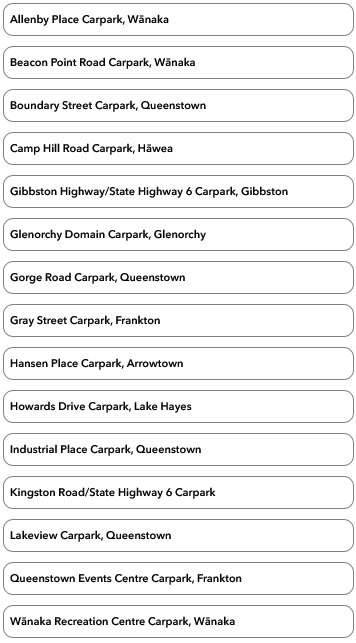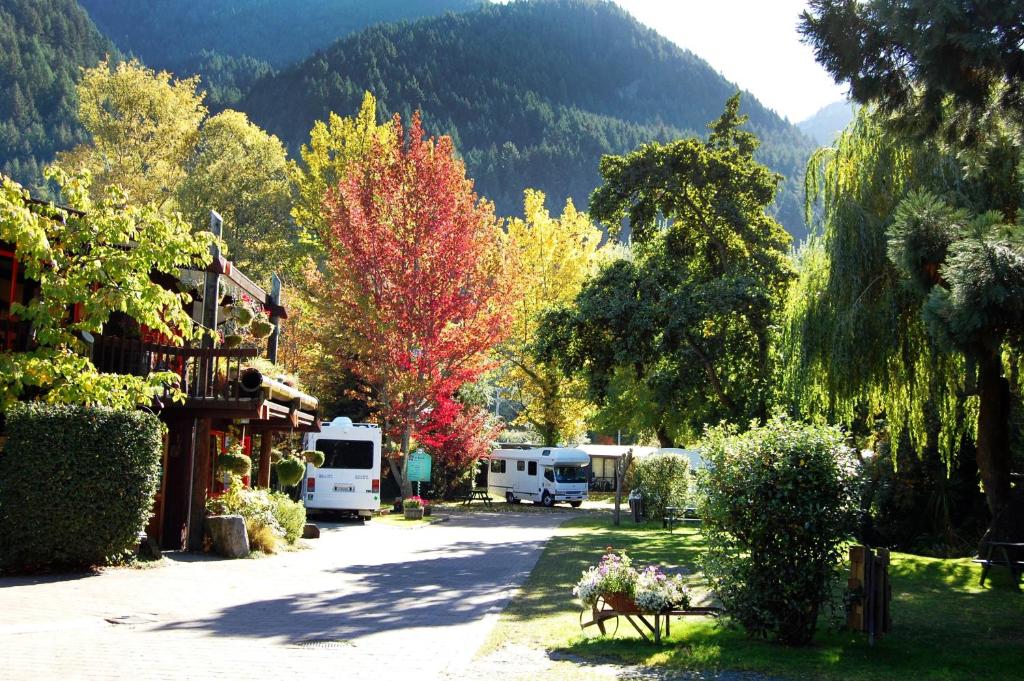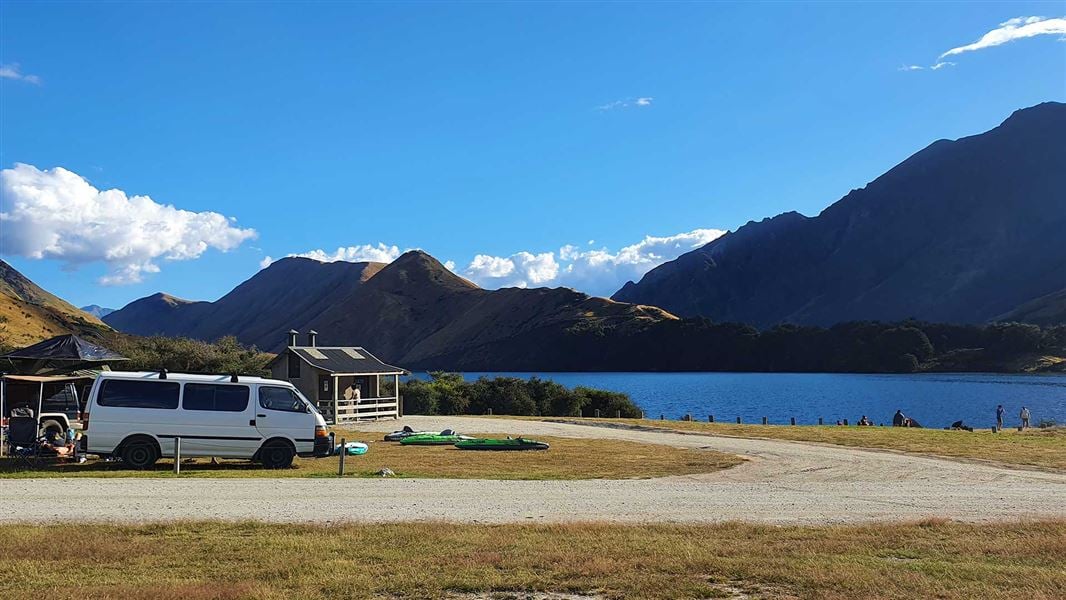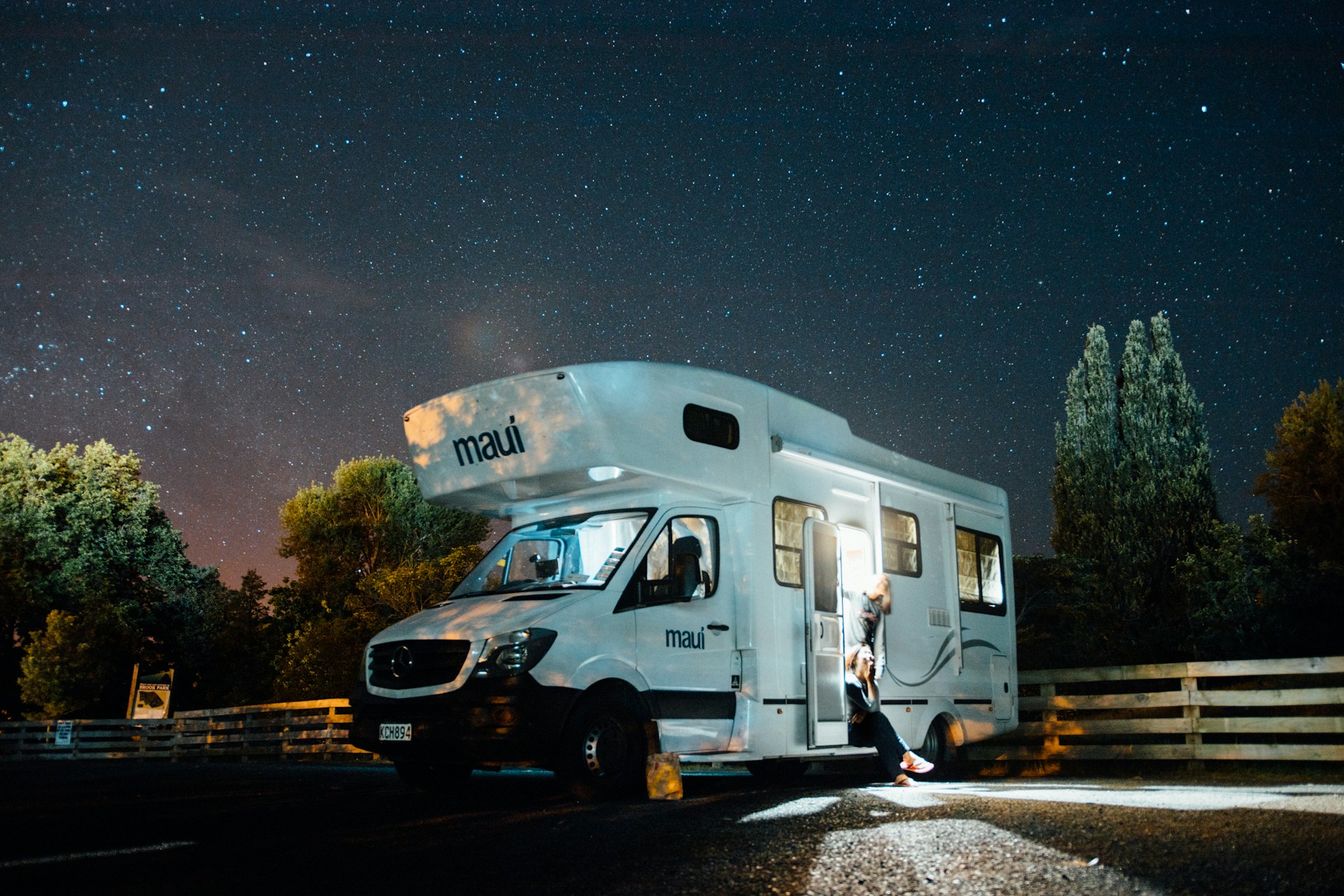BEST VIEWED IN LANDSCAPE MODE ON MOBILE DEVICES
U.S.FTC GUIDELINES PLEASE NOTE: we act as an affiliate for several companies that feature on our website. In some cases we may earn a commission from referrals to those companies. For further information please refer to our Privacy and Disclaimer policies which can be found in the "About" tab.
U.S.FTC GUIDELINES PLEASE NOTE: we act as an affiliate for several companies that feature on our website. In some cases we may earn a commission from referrals to those companies. For further information please refer to our Privacy and Disclaimer policies which can be found in the "US" tab.
Freedom camping in queenstown
Freedom camping in Queenstown: a first-timer’s guide to legal freedom camping in and around Queenstown
Freedom camping in Queenstown can be a really rewarding experience, with some of the most stunning camping locations you can imagine. For many people, it's a great way to experience New Zealand without being confined to a hotel or motel room.
But if you’re planning on freedom camping in Queenstown, you’ll need to abide by some of New Zealand’s strictest freedom camping rules.
Our guide explains what “freedom camping” means, who can do it, the legal requirements for campervans and motorhomes, where freedom camping is commonly allowed around Queenstown, plus the pros and cons of each area.
You’ll also find some information about alternatives like holiday parks and DOC (Department of Conservation) campsites.
Important note on accuracy and change
Rules and designated sites change frequently, sometimes between seasons.
If you are planning freedom camping in Queenstown, always verify the current regulations on:
- Queenstown Lakes District Council (QLDC) freedom camping page and map
- CamperMate app (kept current with council updates) - see below for download links
- The Department of Conservation campsite pages
If you’re unsure on the ground, follow the signs. If there’s no sign explicitly allowing overnighting, do not stay.
What “freedom camping” means in New Zealand
- Freedom camping is overnighting on public land that isn’t a paid campground or holiday park.
- It is regulated by national law and local bylaws. Councils decide exactly where you may stay, for how long, and in what type of vehicle. See the important information below about the Queenstown Lakes District Council Freedom Camping Bylaw 2025.
Who is allowed to freedom camp in Queenstown
This is important:
- Certified self-contained vehicles only in most council areas. After recent law changes, “self-contained” generally means a fixed, permanently plumbed toilet (portable toilets no longer qualify for most public-land freedom camping).
- Your vehicle must display the current green self-containment label and carry the certificate that matches your registration.
- Non-self-contained vehicles (e.g., cars, vans without a fixed toilet) must use paid campgrounds or DOC campsites specifically signed to allow them.
Key legal requirements for campervans and motorhomes
- Certification: Green self-containment warrant that proves a fixed toilet and sufficient freshwater/greywater capacity under the new national system.
- Time limits: Many sites set maximum nights (often 1–3) and arrival/departure windows (e.g., 8pm–8am). Obey posted signs.
- Where you can’t stay: Town centers, residential streets, most reserves, popular lakefronts and many road lay-bys are off-limits unless a sign says otherwise.
- Waste and water: Use official dump stations and taps only. Do not discharge any waste to ground or to our waterways.
- Fires: Observe seasonal fire bans and local restrictions. Use stoves responsibly.
- Penalties: Illegal camping and improper waste disposal attract on-the-spot fines.
You can see a huge range of camper vans to hire here.
Freedom Camping Bylaw 2025
On 1st December 2025, a new Bylaw will come into effect in the Queenstown Lakes District Council (QLDC) area.
The Freedom Camping Bylaw 2025 permits freedom camping in 15 restricted areas in the region (see the image).
It also allows freedom camping on parts of some rural roads, but with very strict conditions covering proximity to the road.
In the built-up urban parts of Queenstown, freedom camping will not be allowed. This stance has been taken by QLDC in order to protect access and parking availability for the community.
The QLDC has a helpful interactive map which you can use to explore these locations. You can view the map here. If you click on a particular location, the restrictions for that location should appear.
Please be aware that substantial penalties apply if you are found to be freedom camping in a non-designated location, or are in breach of the restrictions applying to that location.
You can download your pdf copy of the Bylaw here.
Please download the CamperMate app for up to date information.

Pros and cons of freedom camping in Queenstown
Pros
- Unbeatable scenery and access to trails, lakes and historic sites.
- Flexible travel and cost savings versus holiday parks.
- Quiet, dark skies outside towns.
Cons
- Very few legal options near Queenstown and Glenorchy; popular sites fill quickly.
- Strict enforcement and fines for mistakes; rules change seasonally.
- Minimal facilities—plan your water, waste, power and toilet needs carefully.
- Weather exposure (wind, cold nights, sandflies near water).
Essential planning tips for first-time visitors
- Verify legality the day you camp. Open your app or the council map before dusk.
- Arrive early in peak season. Legal free sites often fill by late afternoon.
- Display your self-containment label clearly. Keep your certificate handy if asked.
- Carry cash or a card-ready device for DOC honesty boxes/fee stations where applicable.
- Manage waste responsibly. Know the location of the next dump station (see NZTA’s dump-station map or CamperMate).
- Respect quiet hours, pack out all rubbish, and leave no trace. Rangers and locals are protective of these places—positive behavior keeps sites open.
FAQs
Can I sleep in my car or a non-self-contained van in Queenstown or Wanaka?
Can I sleep in my car or a non-self-contained van in Queenstown or Wanaka?
Generally no, unless you are in a designated site that explicitly permits non-self-contained vehicles. Most areas require certified self-contained vehicles only.
How big are the fines for illegal camping?
How big are the fines for illegal camping?
On-the-spot fines are common for illegal camping or dumping. Exact amounts vary; expect it to hurt your budget and potentially your itinerary.
Is “free camping” the same as staying in a free DOC campsite?
Is “free camping” the same as staying in a free DOC campsite?
Not exactly. Free DOC camps are designated campgrounds (often basic) on conservation land; freedom camping refers to staying on other public land under council rules. Both can be $0, but the rules and managers differ.
What’s the best free camping near Queenstown?
What’s the best free camping near Queenstown?
Options close to the town center are extremely limited. Many travelers base themselves at low-cost DOC camps like 12 Mile Delta or Moke Lake, or head to Cromwell’s Lake Dunstan designated areas where free sites are more common.
Quick guide to non-free options (good backups)
Holiday parks (powered/unpowered sites, hot showers, laundries, kitchens)
Queenstown/Frankton: Several parks including large, full-facility options close to town, like the Queenstown Holiday Park Creeksyde, Driftaway, and the Queenstown Top 10 Holiday Park. Head across to our dedicated page for more information.
Tip: Book in advance for December–March and during event periods.
DOC (Department of Conservation) campgrounds (usually low cost, basic facilities; some are first-come-first-served)
- Near Queenstown: Moke Lake, 12 Mile Delta (on the Glenorchy Road), and Kinloch (across the Dart River from Glenorchy).
- Wanaka/Hawea/Makarora: The Neck (often free/basic), Boundary Creek, Cameron Flat, Kidds Bush (seasonal). Check DOC for fees and vehicle-size suitability.
- Benefits: Legal, scenic, affordable; often better availability than free council sites.
You can view the DOC camping page for Queenstown here.


Need to hire a campervan or motorhome?
We have access to a huge range of campervans and motorhomes at market leading rates.
To sum it up
You can absolutely enjoy “freedom camping in Queenstown” responsibly, but it pays to plan. Travel with a certified self-contained vehicle, double-check designated sites on the day, and keep low-cost DOC and holiday parks as easy backups.
Do that, and you’ll sleep legally in some of the most beautiful places on Earth—without the stress.


